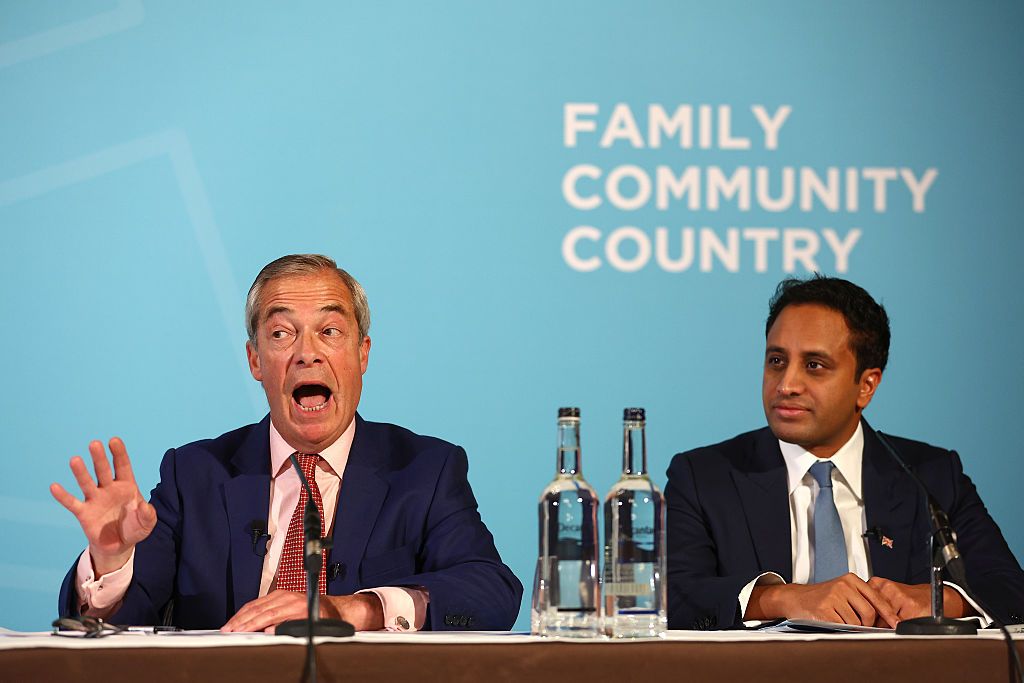By Rachel Cunliffe
Copyright newstatesman

Moving the Overton Window has its consequences. Since the election, Reform UK – despite its tiny handful of MPs – has dominated the debate over immigration and pushed both Labour and the Tories towards more hardline stances than seemed possible a few years ago. Leaving – or, at the very least, dramatically reinterpreting – the ECHR has gone from a fringe obsession to an open topic of discussion. Stopping small boat crossings is now such a top government priority it was considered worth having an entire reshuffle around appointing a home secretary deemed suitably tough.
But what of legal immigration – the people who did not come to the UK in small boats but on planes, with valid visas, following the rules the government laid out for them, and who (despite widespread misconceptions) outnumber their undocumented counterparts by a ratio of more than ten to one?
Today, Nigel Farage announced an answer that is far more extreme than anything proposed to date: abolishing indefinite leave to remain. This status grants migrants who have been in the UK for at least five years the right to apply to stay permanently. Reform’s proposal is to eliminate this process completely, making foreign nationals re-apply for new visas ever five years, with stricter conditions on salary requirements and no access to welfare or free healthcare.
Crucially, it would apply not just to people arriving after the changes are made under a future Reform government, but retrospectively, to hundreds of thousands of foreign nationals who are here perfectly legally. Farage has already called for mass deportations of those living in the UK with no permission to do so. This is on another level entirely, targeting not people who crossed the channel illegally in small boats, but of those who came here on valid visas yet whose earnings suddenly don’t meet Reform’s higher threshold.
That raises some pretty big questions practically (how does a Reform party courting businesses plan to handle the resulting jobs shortages?), legally (the court challenges write themselves) and morally (again, Reform are talking about uprooting and deporting people who have jumped through every hoop the UK government placed in their path). In electoral terms, it’s difficult to pre-empt how voters will feel about a policy area that isn’t widely understood, but even people who want to see immigration dramatically reduced often cite “fairness” as one of their key concerns – and may have views about changing the rules for someone who has done everything right.
Why push for something so extreme (not to mention unworkable) when Reform is already comfortably leading the polls? Farage reveals his thinking in his op-ed in the Daily Mail this morning: he wants to reverse the “Boriswave”.
This is the term used in right-wing corners of the internet for the cohort of migrants who came to the UK post-Brexit, under the points-based system devised by Boris Johnson and Priti Patel. Far from reducing immigration numbers to “tens of thousands”, the new rules dramatically increased them: inward arrivals in 2022 and 2023 topped one million per year. The total size of the cohort is estimated at 3.8 million – one and a half times the population of Birmingham. The earliest Boriswave arrivals will soon be eligible for ILR under the existing rules, and questions have been raised about how much this will cost the government in terms of lifetime access to welfare and the NHS.
In the abstract, this understood to be one of the most toxic aspects of the Tories’ legacy, particularly (but not exclusively) to voters on the right: we are used to hearing how the Conservatives “lost control of the borders” from Keir Starmer as well as Farage. But the specific culprit usually gets left off the hook. Kemi Badenoch will refer obliquely to mistakes made by her predecessors, but has been reluctant to criticise Johnson directly. Indeed, she has made the other architect of the points-based system which saw so many new arrivals her shadow home secretary. Farage has also steered clear of condemning the man he helped win an 80-seat majority in 2019.
Today’s intervention marks a change of strategy. Farage is going after Johnson outright, tying his legacy to what Reform argues is the biggest failure of government policy in a generation. The timing is interesting. On the eve of Reform’s party conference in Birmingham, Nadine Dorries – arguably Johnson’s biggest cheerleader in British politics – defected from the Tories. (One can only imagine what she will make of her new boss slagging off her idol.) Then during the Trump state visit last week, a dinner was held for UK right-wingers to meet their Republican counterparts, at which Johnson got into a furious row with others around the table (including his successor Liz Truss and the veteran broadcaster Andrew Neil) about his immigration record. This issue continues to divide what is left of the Tory party – even if Johnson routinely tops the polls for who Conservative voters would most like to see replace Badenoch.
And so Farage has spotted an opportunity. Deepen the divides within the Conservative Party over Johnson, and distance Reform (home to an increasing number of self-exiled former Tories) from the party that was in government for 14 years, by arguing what the Johnson government did is so damaging that simply changing course in future is not enough.
Again, this is something far more extreme than anything we have seen so far. In February Badenoch suggested extending the time a foreign national would need to stay in the UK to be eligible for ILR; in May, the Labour government announced similar as part of its immigration White Paper. Reform’s proposal is different. It is retrospective, evocative of the ICE raids in the US that have seen people who have lived and worked in America legally for years face imprisonment and deportation with little legal recourse. And it carries with it the implicit assumption that some people, no matter how long they have lived in this country or what they have contributed, do not belong here.
Growing mainstream appeal has its challenges for Reform. Last weekend, Tommy Robinson’s Unite the Kingdom demonstration took over the capital. Farage has been determined to keep Robinson and his supporters away from Reform. As we discussed on the podcast last week, those attending the rally were no fans of Farage, who they considered too soft. Farage has succeeded in moving the Overton Window and changing the Labour and Tory positions on immigration. Having done so, he is now going further, in an attempt not just to neutralise what remains of Johnson’s popularity but – perhaps – to avoid being outflanked by those to the right of Reform who don’t think sending back illegal migrants is enough.
Farage doesn’t use the word “remigration”, a term popular with those on the far right calling for mass deportations. It’s a word that comes from the same corners of the internet from which “Boriswave” emerged. And it is, in essence, what Reform has just proposed.



